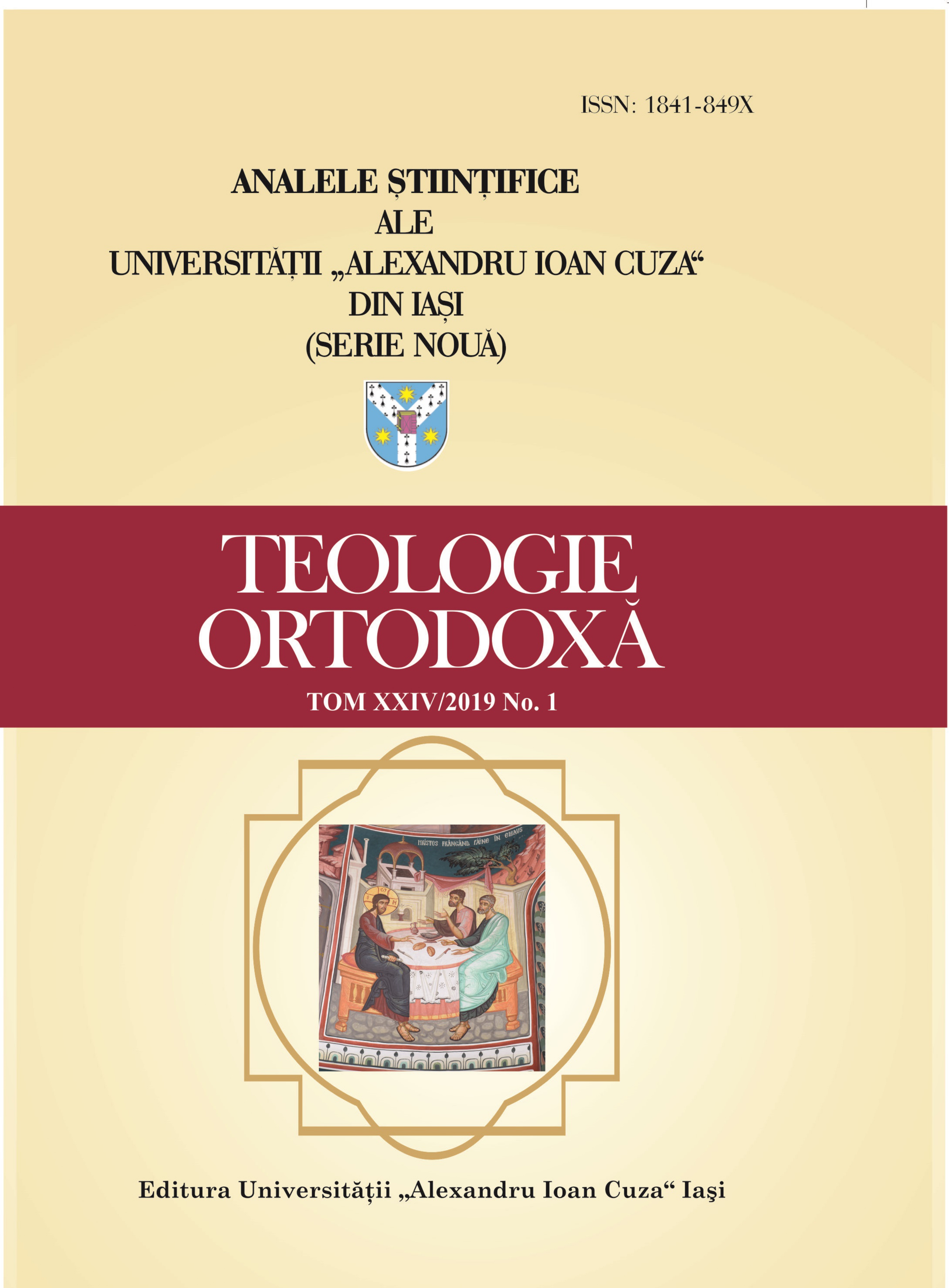Ilie MELNICIUC-PUICĂ - He came to a village… (Lk. 10, 38)
Ilie MELNICIUC-PUICĂ
Rev. Assoc. Prof. PhD. Faculty of Orthodox Theology, Alexandru Ioan Cuza University of Iaşi, ROMANIA
Abstract:
St. Luke's Evangelist records several contexts in which we can identify hospitality, as a bridge between people of similar or different social categories. Developing the hospitality from the two sisters 'house (Lk. 10, 38-40), in antinomy with Emmaus' dinner (Lk. 24: 13-36), in this study the role of the host receiving the guest as well as that of the guest who becomes the host is appreciated. Both events are placed by St. Luke in the countryside, during two trips. The Eucharistic Supper of Emmaus is preceded by the Scripture journey in search of Christ. The Emmaus Host becomes unseen by the eyes of Cleopas and the other disciple, but lights the hearts by understanding Scripture and consuming the bread-Christ. In the Gospel of St. Luke the rejection of Jesus by the village (εἰς κώμην) of the Samaritans, when He was on his way to Jerusalem (Lk. 9: 52) is considered an inhospitality exception. In this context, the Samaritans would have been in the position of hosts.
Keywords:
Luke Gospel, village, hospitality, Martha and Mary, Emmaus
Bibliography:
- Bădiliță, Cr. 2016. “Noul Testament. Evanghelia după Luca, bilingual edition, introduction, inedited translation, commentary and patristic notes. Bucureşti: Vremea.
- Constantinescu, Pr. Prof. I. 1965. “Pe drumul spre Emaus cu Luca și Cleopa”, în Glasul Bisericii XXIX, nr. 3-4: 244-249.
- Denaux, Adelbert. 2012. “The Theme of Divine Visits and Human (In)Hospitality in Luke-Acts, pp. 71-92”, în Strangers and Pilgrims on Earth: Essays in Honour of Abraham Van de Beek. (Eds.) Eduardus van der Borght, Paul van Geest, Brill. Leiden-Boston.
- Dillon, J.R. 1978. “From Eyewitnesses to Ministers of the Word. Tradition and Composition in Luke 24”, în Analecta Biblica 82. Rome: Biblical Institute
- Hermant, D. 1997. “Un procedé d’écriture de Luc: le transfert”, în Revue Biblique 104: 528-556
- Koenig, J. 1985. New Testament Hospitality: Partnership with Strangers as Promise and Mission. Philadelphia: Fortress Press
- Lavatori, R.; L. Sole. 2017. Secvențe din Evanghelia după Luca. Traducere de Pr. Cr. Rus și Pr. Aurel Rus. Târgu Lăpuș: Galaxia Gutenberg.
- Legrand, L. “Deux voyages Lc 2, 41-50; 24, 13-33”, în À cause de l'Évangile. Études sur les Synoptiques et les Actes offerts a P. J. Dupont, Lectio Divina 123, Publications de St. André, Ed. du Cerf, Paris, 1985.
- Marcu, Grigorie T. 1956. “Părți proprii Sf. Luca în finalul istorisirilor evanghelice”, în Mitropolia Ardealului 1, nr. 1-2: 51-62.
- Melniciuc-Puică, Ilie. 2005. Utilizarea Vechiului Testament în scrierile lucanice. Iaşi: Performantica
- Murg, Adrian. 2005. “Jubileul ca fundal al predicii Mântuitorului Iisus Hristos în Nazaret (Lc. 4, 16-30)”, în Teologia, anul IX, nr. 3: 178-211
- Perrot, Ch. 1982. “Emmaüs ou la Rencontre du Seigneur”, în La Pâque du Christ. Mystère de salut. Mélanges offerts au P. F.-X. Durrwell pour son 70e anniversaire. (eds. Martin Benzerath), (coll. Lectio Divina, 112). Paris: Les Éditions du Cerf
- Pitt-Stengers, J. 1968. “The Stranger, the Guest, and the Hostile Host: Introduction to the Study of the Laws of Hospitality”, în J.G. Peristiany (ed.), Contributions to Mediterranean Sociology. Paris.
- Preda, Pr. Conf. Dr Constantin. 2010. Învierea Mântuitorului în memoria narativă a Evangheliilor. București: Basilica
- Rossé, Gérard. 1992. Il Vangelo di Luca: commento esegetico e teologico. Roma: Citta Nuova
- Sf. Ambrozie al Milanului. 2010. Expunere la Evanghelia după Luca. Traducere din limba latină, introducere şi note de Pr. Dr. Ilie Melniciuc-Puică. Iaşi: Performantica
- - St. Ambrose of Milan, Commentary on Luke, https: //sites.google.com/site/ aquinasstudybible/home/luke-commentary/ambrose-on-luke-10
- St. Gregory the Great, Homily 23 on the Gospels, https: //sites.google.com/site/ aquinasstudybible/home/luke-commentary/gregory-the-great-homily-23-onthe-gospels
- Tofană, Stelian. 2002. “Euharistia în arătarea lui Hristos la Emaus (Luca 24, 13-35). Repere exehetice și teologice”, în Ortodoxia LIII, nr. 1-2: 14-25.

